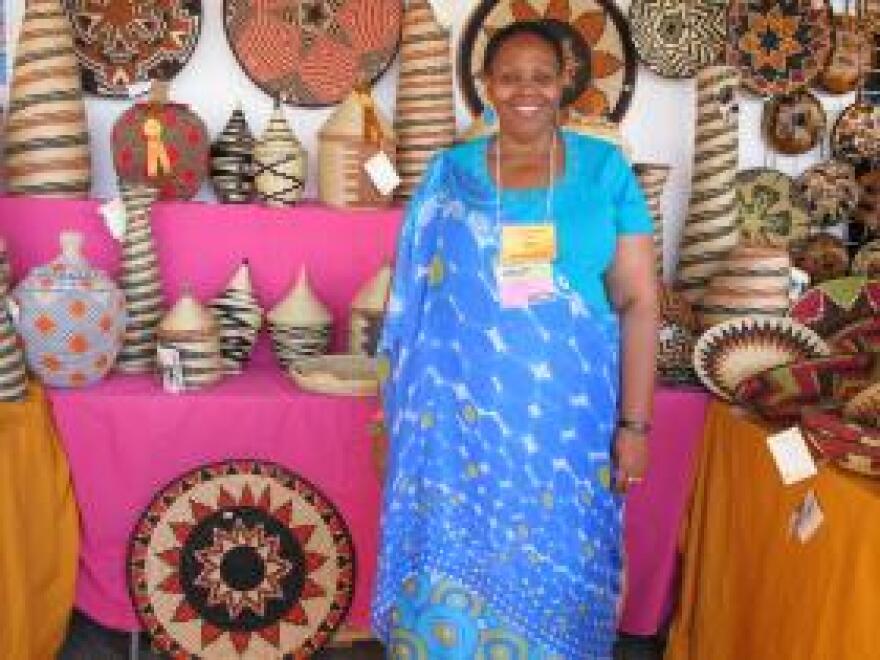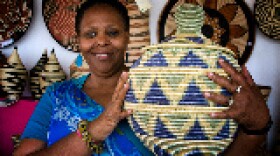This year marks the 10th anniversary of the International Folk Art Market | Santa Fe. Money earned over three days by these artists allows them to preserve important cultural traditions and develop everything from housing to health centers in poor communities. For two women, reviving traditional art forms has been essential to helping their countries overcome the horrors of genocide.
Rwanda
After the devastating 1994 genocide against the Tutsi that killed up to one million people, Rwanda had many women who were widows, single mothers, wives with husbands facing long jail terms, and teenage orphaned girls. Janet Nkubana and her sister, Joy Ndunguste, created the Gahaya Links Cooperative to help all women heal and earn income through traditional craft.

My name is Janet Nkubana and I'm exhibiting handmade basket and jewelry from Rwanda. Weaving has been in Rwanda from ancient times and this has been passed on from one generation to the other. But after the 1994 genocide, we transformed this weaving into an income generating opportunity for the women of Rwanda.
If you sell a basket for at $100 or $200 you can feed a family for a month or two. Or if you sell two baskets you can pay tuition for your child for a whole semester. It means a lot to us. Because we make baskets to bring to the market it has brought the women together. Both aisles of the genocide can now sit under one roof and make baskets. It has healed us in terms of unity and reconciliation.
And it has opened opportunity for us. I have opened markets with the Smithsonian, the Museum of Art and Design in New York and now we are going to Bach Museum in Seattle so it opens doors.
Cambodia
Chantha Nguon started the Stung Treng Women’s Development Centre in 2002 with a $3,000 grant from Partners in Progress. The project focuses on teaching and mentoring local women in the art of ikat silk weaving while developing life skills that assist in breaking the cycle of poverty and illiteracy. The Mekong Blue silk products are now regarded as one of the finest silk products in Cambodia.
My name is Chantha Nguon. I'm from Cambodia. I'm working with hand-woven silk. After the civil war in Cambodia in 1979 everything nearly washed out. It killed millions of people. After the war, we started from Year Zero. It means everything was demolished. All the master weavers were killed except one. So that's how we started the traditional weaving, from him. To revive traditional craft is a duty for us, but we also have to think about how to rebuild the country by reviving the craft as well.
We used to sell to England, to France, a lot to America, but then during the recession we lost almost all of the buyers. It's kind of a miracle that Santa Fe came in. We call it a life jacket.
Our community, we work not only with the weavers but with their whole family. We support their old parents when they are sick. We send them to the hospital. And we help the children in the community with the sales from the Folk Art Market. We are able to set up a kindergarten. We continue to support them from grade one until grade nine and we are also able to take care of their health. We have the health center to take care of the community. That's the impact of the Folk Art Market.





